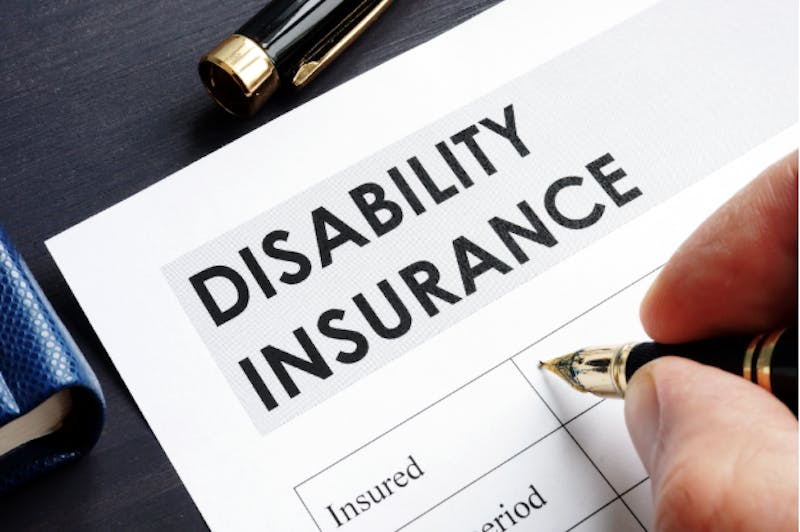Applying for long-term disability (LTD) benefits can be a daunting process, filled with legal jargon, complex paperwork, and stringent deadlines. This guide aims to simplify the procedure, offering a clear, step-by-step approach to applying for LTD benefits.
Whether you’re dealing with a physical injury, a chronic illness, or a mental health condition that prevents you from working, understanding how to navigate the application process is crucial. Visit this website for more information.
Long-Term Disability Insurance

Long-term disability insurance is designed to provide financial support to individuals who are unable to work for an extended period due to a disabling condition. Unlike short-term disability benefits, which cover temporary disabilities, LTD benefits are intended for more severe conditions that affect an individual’s ability to work for months, years, or even permanently.
LTD insurance can be obtained through an employer-provided group plan, a private policy purchased by an individual, or a combination of both. The specific terms, including the definition of disability, waiting periods, benefit amounts, and duration of benefits, can vary significantly between policies.
Initial Preparation
Before starting the application process, it’s important to thoroughly understand your LTD policy’s specific requirements and provisions. This includes the definition of disability according to your policy, the required waiting period (also known as the elimination period), and the documentation needed to support your claim.
Gathering medical evidence is a critical step in preparing your application. This includes medical records, test results, and doctors’ statements that detail your condition, how it affects your ability to work, and the medical care you are receiving. Additionally, consider how your condition affects your daily life beyond your professional duties, as this can also support your claim.
Filing the Claim
The first official step in applying for LTD benefits is to file a claim with your insurance provider. This typically involves completing an application form, which requires detailed personal information, information about your employment and earnings, and a thorough description of your medical condition.
It’s essential to provide complete and accurate information on your application. Inaccuracies or omissions can delay the processing of your claim or result in a denial. Pay special attention to the description of your job duties and the medical explanation of why you are unable to perform those duties.
Medical Documentation

As mentioned, medical documentation is pivotal to the success of your LTD claim. This includes a detailed report from your treating physician(s) that outlines your diagnosis, the treatments you’ve undergone, your response to those treatments, and a prognosis.
It should explicitly state how your condition prevents you from performing your job or any job, depending on your policy’s definition of disability.
In some cases, the insurance company may request an independent medical examination (IME) to verify your condition. While this can be stressful, it’s a standard part of the process. Ensure you attend any scheduled IMEs and cooperate fully, but also be aware of your rights during these examinations.
Legal and Financial Considerations
Applying for LTD benefits can also involve significant legal and financial considerations. Understanding the tax implications of your benefits, how receiving LTD benefits might affect other benefits you receive (such as Social Security Disability Insurance), and the potential for a lawsuit if your claim is denied are all critical factors to consider.
In many cases, it’s advisable to consult with a lawyer who specializes in disability claims. They can provide valuable advice on the application process, represent you in case of a denial, and help navigate the complex interplay between different types of benefits.
Dealing with Denials
Unfortunately, LTD claims are often denied. If your claim is denied, it’s important to understand the reasons for the denial and the process for appealing the decision. This usually involves submitting a written appeal that addresses the reasons for denial and includes additional evidence supporting your claim.
The appeals process can be lengthy and complex, requiring a thorough understanding of your policy’s terms, the applicable laws, and the evidence needed to support your claim. This is another stage where legal representation can be invaluable.
Maintaining Your Benefits

Once your LTD benefits have been approved, there are still steps you need to take to maintain your benefits. This includes complying with any treatment plans, attending periodic medical evaluations, and keeping your insurer updated on your condition and any changes in your ability to work.
It’s also important to understand how long your LTD benefits will last. Some policies provide benefits until retirement age, while others have a fixed term. Knowing the duration of your benefits can help you plan for the future.
FAQs
How do I choose the right long-term disability insurance policy?
When choosing an LTD policy, consider factors such as the coverage amount, the length of the waiting period before benefits begin, the duration of benefits, and the definition of disability used by the policy. Compare policies from different providers and consider consulting with a financial advisor or an insurance agent specializing in disability insurance to find a policy that best suits your needs and financial situation.
Can mental health conditions qualify for long-term disability benefits?
Yes, mental health conditions can qualify for long-term disability benefits, provided they meet the definition of disability outlined in your policy and significantly impair your ability to work. Documentation from mental health professionals and evidence of ongoing treatment are crucial for supporting claims based on mental health conditions.
What if my employer does not offer long-term disability insurance?
If your employer does not offer LTD insurance, you can purchase an individual policy from a private insurance company. Individual policies can provide similar benefits but may have different terms and premiums compared to group plans offered by employers. It’s important to research options and understand the terms before purchasing an individual policy.
How are long-term disability benefits calculated?
LTD benefits are typically calculated as a percentage of your pre-disability earnings, usually between 50% to 70%. The specific percentage and any maximum benefit limits will be outlined in your policy. It’s important to understand how your policy calculates benefits, including any adjustments for other disability benefits you may receive.
Can I work while receiving long-term disability benefits?
Some LTD policies offer partial or residual disability benefits that allow you to work in a limited capacity while still receiving benefits. The specifics depend on your policy’s provisions regarding work incentives and the amount of income you can earn while on disability. Always review your policy’s terms and consult with your insurance provider before taking up any work.
What happens to my long-term disability benefits if I move to another country?
The impact of relocating to another country on your LTD benefits can vary by policy. Some policies may have geographic restrictions or modifications in coverage if you move abroad. It’s essential to notify your insurer and discuss the implications of moving on your benefits. In some cases, you may need to arrange for additional coverage or modify your existing policy.
Final Words

Applying for long-term disability benefits is a process that requires patience, attention to detail, and often, legal guidance. By understanding your policy, gathering comprehensive medical evidence, and accurately completing all required paperwork, you can increase your chances of a successful claim.











